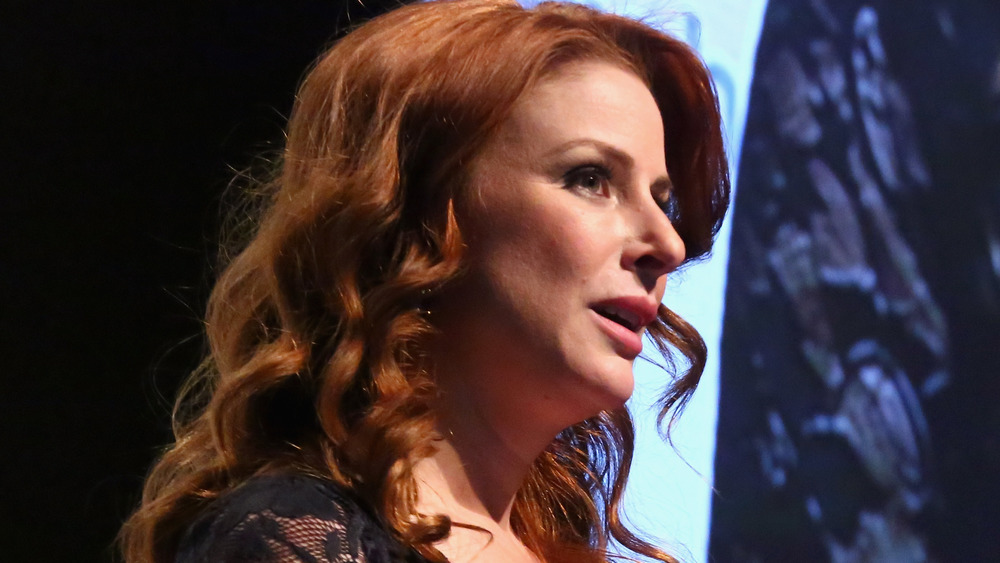Diane Neal takes on a challenging role in Lifetime's film Circle of Deception, a story inspired by the real-life murder of Russel Douglas. This gripping film showcases the dark side of human nature, exploring the motivations behind heinous acts. Neal's portrayal is not just an act; it resonates with her personal experiences, making her performance all the more compelling.
In her exclusive interview with Nicki Swift, Neal revealed that her past experiences have significantly influenced her approach to the character. "I'm a survivor of some pretty extreme domestic violence," she stated, connecting her personal struggles with the complex character of Peggy Sue Thomas. This connection adds depth to her portrayal, allowing viewers to glimpse the nuanced realities of those who have endured similar hardships.
As the film unfolds, audiences witness Thomas’s descent into moral ambiguity, illustrating how desperation can lead to unimaginable actions. Neal's insights into the psychological aspects of her character illuminate the film's exploration of sociopathy and the human condition. "It's hard... because you get victim shamed," she reflects, highlighting the societal pressures victims often face.
Biography of Diane Neal
| Detail | Information |
|---|---|
| Name | Diane Neal |
| Birthdate | November 17, 1975 |
| Occupation | Actress, Model |
| Notable Roles | Law & Order: SVU, NCIS, Circle of Deception |
| Personal Life | Survivor of domestic violence |
Neal’s career has been marked by her roles on popular shows like Law & Order: SVU and NCIS, where she portrayed characters who fought for justice. However, behind the scenes, she has faced her own battles, including abusive relationships. This personal experience adds a layer of authenticity to her latest role, revealing the complexities of portraying a character like Peggy Sue Thomas.
In Circle of Deception, Neal's character engages in a plot to murder for financial gain, a storyline that raises questions about morality and desperation. This film not only entertains but also prompts viewers to reflect on the real-life issues of domestic violence, betrayal, and the consequences of one's choices.

Astrid Stawiarz/Getty Images
Exploring the Nature of Evil
In her discussions about the film, Neal emphasizes that "real evil tends to be subtle and slow." This statement captures the essence of how malevolence can hide behind a facade of normalcy. The film challenges viewers to consider the motivations behind seemingly innocuous actions that could lead to catastrophic outcomes.
Through her character, Neal explores the psychology of individuals who commit heinous acts. "It's staggering what motivation they found acceptable," she reflects on the book Practice to Deceive, the true crime novel on which the film is based. This exploration of motives invites viewers to understand that evil can often be rooted in complex psychological conditions.
As the narrative unfolds, audiences witness the transformation of Neal's character from a desperate woman to one willing to commit murder. This arc serves as a cautionary tale about the lengths one might go to when pushed to the edge. It encourages viewers to empathize with those who find themselves in morally ambiguous situations, fostering a deeper understanding of the human psyche.
The Impact of Personal Experience on Performance
Neal's past as a survivor of domestic violence informs her performance, making it resonate on a personal level. "Taking on the part of Thomas was really cathartic," she admits, drawing parallels between her life and the character's choices. This catharsis allows her to portray the character with authenticity, enhancing the film's emotional depth.
The actor’s research into Peggy Sue Thomas's real-life case reveals the complexities of her motivations. Neal discovered that Thomas genuinely believed she had done nothing wrong, highlighting the disconnect often present in the minds of those who commit crimes. This understanding enriches Neal's portrayal, offering a glimpse into the psychological struggles faced by those involved in such tragic circumstances.
With each revelation about her character, Neal invites viewers to engage in a dialogue about morality, justice, and the human condition. As the film asks difficult questions, it simultaneously provides a platform for survivors to share their stories, fostering awareness about domestic violence and its effects.
Circle of Deception is now playing on Lifetime, showcasing Diane Neal's powerful performance and the haunting realities behind the story. Viewers are encouraged to reflect on the themes presented and consider the broader implications of the narrative.



